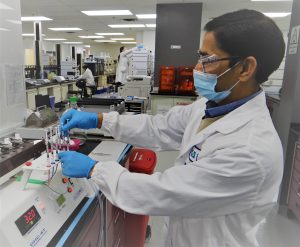Advanced topical product testing services.
CPL’s team of scientists is experienced in employing topical testing techniques such as IVRT, IVPT and skin-model-based testing – vital parameters in the development and monitoring of semi-solid topical drug products. Our Skin Lab is eager to support your testing needs for the development of topical and generic semi-solid drug products.
The vital role of IVRT in topical drug development.
The FDA initially issued its guidance for in vitro release testing and in vivo Bioequivalence Documentation for Non-Sterile Semi-Solid Dosage Forms (SUPAC-SS) in May 1997, last updating it in October 2022. These guidelines aim to support the development of generic products and enhance patient care. They facilitate therapeutic equivalence assessments, replacing in vivo clinical studies with in vitro permeation testing (IVPT) and in vitro release testing (IVRT). IVRT has thus become indispensable for establishing therapeutic equivalence in the drug development of semi-solid formulations.
Replicating a reference formulation is crucial in developing generic topical formulations, ensuring both content and behavior mimicry, including the release rate of the active ingredient. IVRT serves as a reliable and convenient tool for measuring the release rate of topical formulations, uniquely qualified for establishing bioequivalence.
in vitro release testing (IVRT)

IVRT serves various purposes, including site transfers, post-approval changes, and as a QC parameter for batch release and stability monitoring. It’s commonly paired with IVPT for topical drug product approval and may become mandatory for future regulatory submissions. Developing an IVRT assay can be challenging, especially for slow-releasing formulations or poorly soluble actives. Biases in method design can lead to flawed testing, delaying drug development and approval. CPL has completed numerous projects involving topical sprays, gels, and creams, meeting regulatory requirements and obtaining successful approvals using data from these projects.
Our IVRT services include:
- Method development and validation
- Product testing to support formulation development and to monitor batches from scale-up to commercial manufacturing
- IVRT services to support shelf-life stability, lot variability and site-transfer studies
- Comparative testing of generic formulations with Reference Listed Drug to establish bioequivalence in accordance with Mann-Whitney Rank Sum Test
- Documentation support for submission to regulatory agencies
in vitro permeation testing (IVPT)
IVPT is a critical tool for understanding drug delivery into various layers of skin and helps identify formulations delivering the drug to the target skin layer. IVPT is also a highly pertinent tool to study drug clearance from the skin into the systemic circulation. This has been shown to have strong in vivo – in vitro correlation. The drug is applied on pig skin and human cadaver skin discs and partitioning across different skin layers is determined after separating the individual layers.
Our IVRT services include:
- Skin integrity testing, method development and drug distribution analysis.
- Flux analysis under finite and infinite dose conditions
- IVPT services to support formulation development, bioequivalence testing and QC purposes
Mass Balance Distribution Analysis
Skin lab can use excised animal and human skin discs to study drug distribution in the receiving medium, within the various layers of the skin and on top of the skin (‘left over’) fractions. CPL conducts this testing to support formulation development, drug screening, penetration, and bioequivalence studies.
Cell-based Assay Development
Skin Lab also offers development of a wide range of cell-based assays using the foremost technology in our GMP-certified environment. Some of the applications include pathway analysis, drug efficacy screening and lead candidate selection, mechanistic studies, and identification of markers.
Hear from one of our experts
